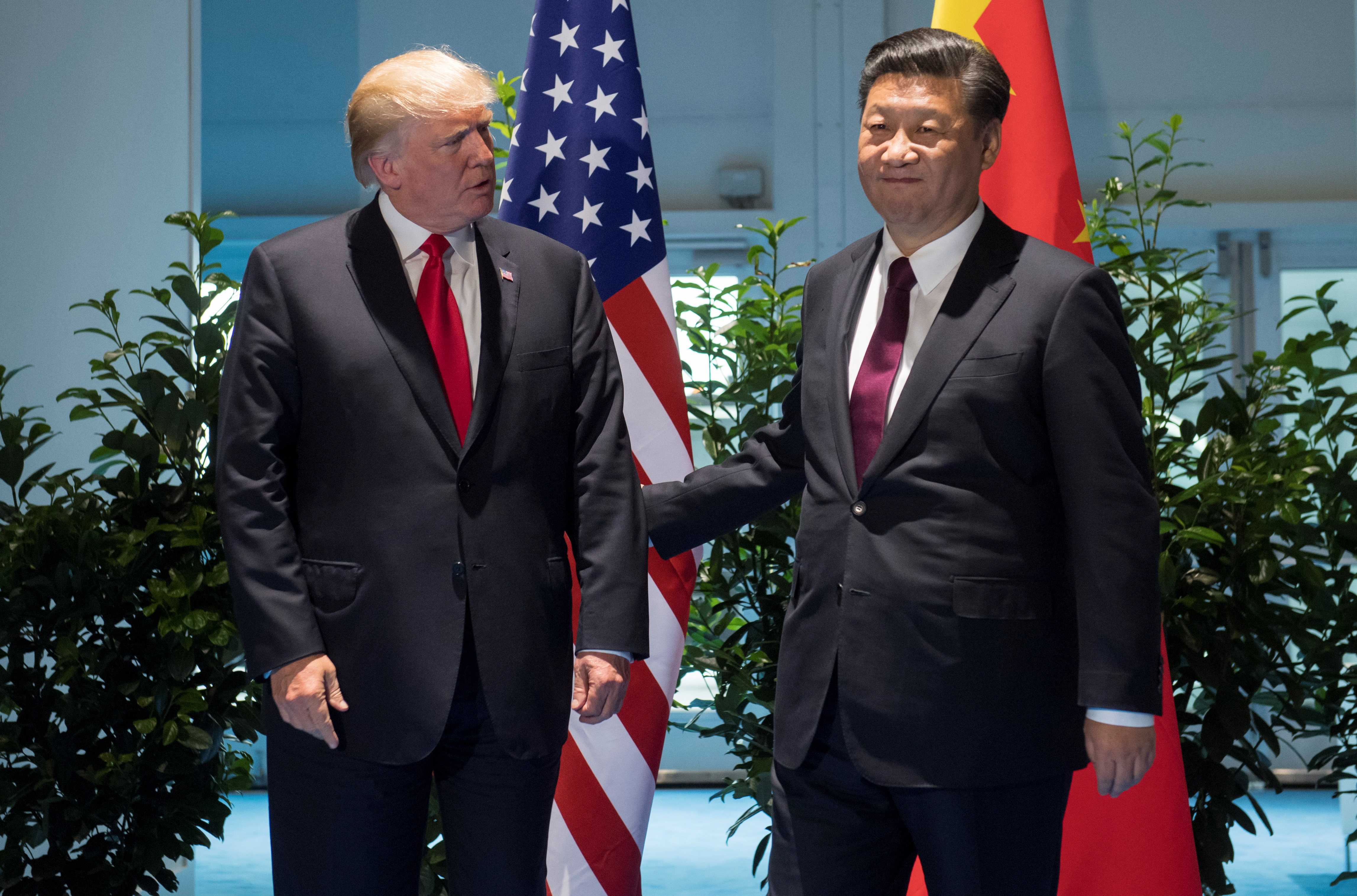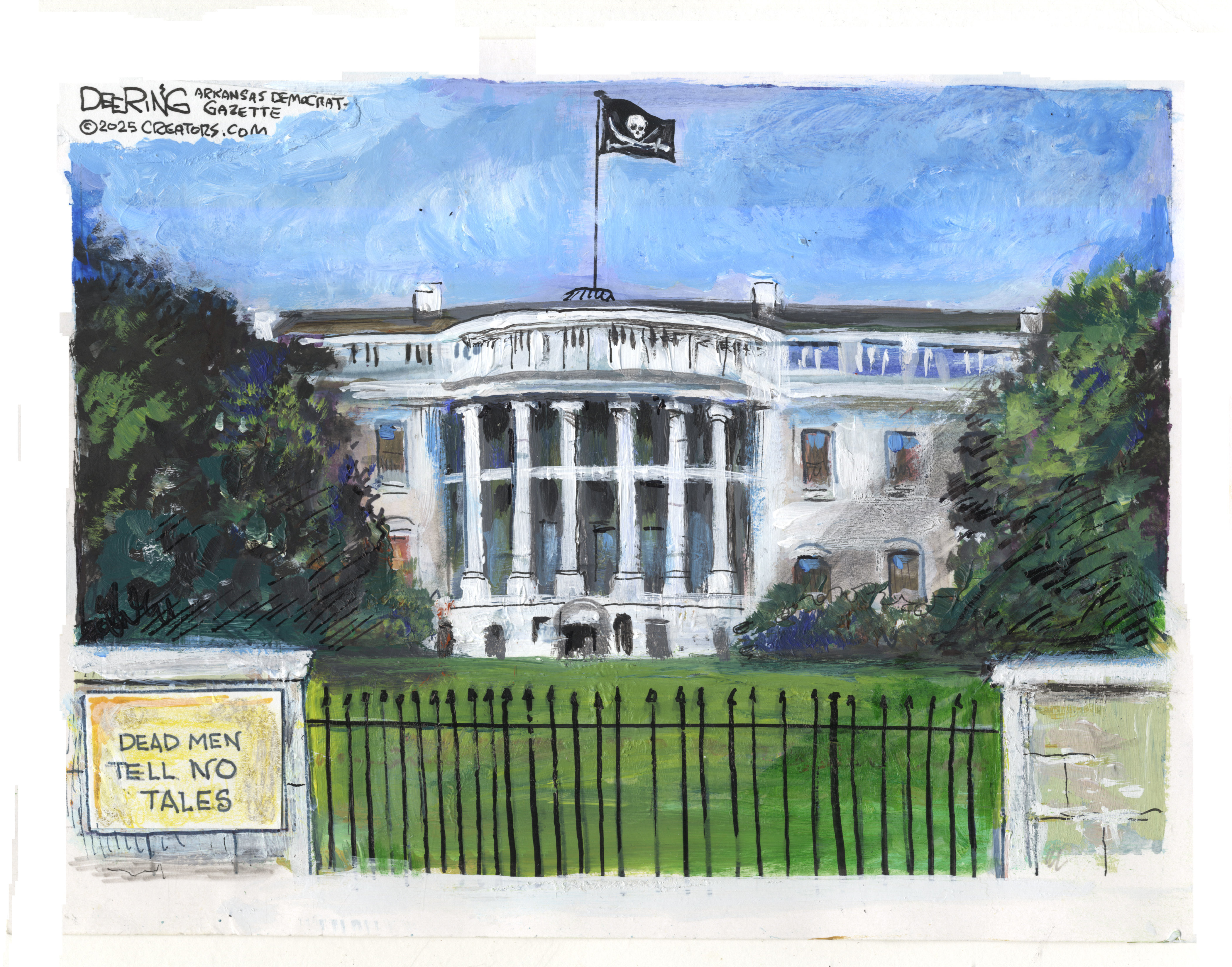Trump's trade posturing against China is very confused
In the grand scheme of Chinese trade problems, why go after intellectual property?


Officially, President Trump is in the middle of a 17-day "working vacation." But according to a White House announcement, Trump temporarily dropped the "vacation" part on Monday and returned to Washington, D.C. The pressing issue that tore the president away from his New Jersey golf club? Taking a largely symbolic jab at China over trade.
The president signed a memorandum on Monday instructing U.S. Trade Representative Robert Lighthizer to consider investigating China for stealing American technology and intellectual property. This is hardly a new complaint: The European Union, Germany, Japan, and Canada have all made similar accusations — which Chinese officials, needless to say, deny.
In particular, the Trump administration wants to focus on an alleged practice where — as part of China's hybrid form of state-run capitalism — foreign companies must do joint ventures with Chinese companies (often state-owned) to do business in the country. And this often involves requirements that the foreign businesses turn over technological secrets and other knowledge.
The Week
Escape your echo chamber. Get the facts behind the news, plus analysis from multiple perspectives.

Sign up for The Week's Free Newsletters
From our morning news briefing to a weekly Good News Newsletter, get the best of The Week delivered directly to your inbox.
From our morning news briefing to a weekly Good News Newsletter, get the best of The Week delivered directly to your inbox.
One report estimates the annual losses to the U.S. economy from all IP theft are at least $225 billion, and perhaps as high as $600 billion. And it pegs responsibility for 87 percent of that on China.
A related sore spot is America's overall trade deficit with China, which totaled $347 billion in 2016. As the BBC explained: "Some of that deficit, the argument goes, is because Chinese firms are copying U.S. products and ideas and either selling them back to the U.S. at a lower price or squeezing U.S. imports out of the Chinese market."
Unfortunately, while there are clearly some real problems here, it's not obvious what Trump thinks he's actually going to accomplish. Trump's White House is defined by its complete incoherence and lack of policy literacy, combined with a tendency to mistake xenophobic bluster for substantive action. This latest move looks little different.
First off, there's the chance that nothing could come of this. Trump instructed the trade office to look into opening an investigation. There's no deadline on how long that initial inquiry could take. And if started, the investigation itself could take a year. Only after the investigation's conclusion would action be taken, under Section 301 of the Trade Act of 1974 — most likely in the form of stiff tariffs on Chinese exports to the United States. But the law hasn't been used since the World Trade Organization (WTO) was created in 1995.
A free daily email with the biggest news stories of the day – and the best features from TheWeek.com
That said, the Trump administration is not exactly positive on the WTO, so they might go around it. Such a move would come with its own attendant complications, though. The fact that the White House just wants to look into opening an investigation may also signal a willingness to do a pre-emptive deal with China, and thus forestall all that messiness.
Yet the economics of this don't make a ton of sense, either. That's especially true when you look at it through the lens Trump professes to care most about: employment.
For one thing, it's highly contested whether IP rights are even a good or bad thing for job growth anymore. Such laws allow a company to charge any other economic actor a fee for using their technology, thus pulling in a profit without lifting a finger. But the monopoly power and overwhelming time frames provided by modern IP rights seem to have drifted well into the realm of overkill. Critics argue this practice actually depresses innovation and slows down economic growth by preventing people from being able to take advantage of new technology cheaply.
Ultimately, enforcing IP law on Chinese society would simply pump more money into the profit margins of American companies. If those margins were razor thin, you could make an argument that China's brazen refusal to respect IP law is implicated in our own economy's sluggish job growth. As it stands, U.S. profit margins are sky high, suggesting the problem is something intrinsic to the U.S. economy itself. In which case, increasing the stream of IP revenue will do nothing but expand those profit margins further. That would be good for shareholders, but it would probably do little for the average American worker.
Lastly, if the problem is cheap Chinese goods coming into the U.S., then the issue isn't really that they're getting the technological know-how to produce those goods. The problem is they can produce them, well, more cheaply. That might be due to lower labor costs, which will only be fixed as China's standard of living continues to improve. But it could also be due to currency manipulation and screwy exchange rates. There are fixes for that, but they have nothing to do with IP law.
The other possibility is that this doesn't have anything to do with economics at all. Instead, the threat of a trade investigation is actually aimed at getting China to cooperate on isolating North Korea.
Tensions between that latter country and America recently ratcheted way up over North Korea's nuclear weapons program and its testing of intercontinental ballistic missiles. China is a major trading partner of North Korea, and one of the country's few allies. But even China is getting fed up: It recently joined a unanimous U.N. Security Council vote to impose new sanctions on North Korea. So China will be cutting off imports of North Korean iron, lead ore, and coal in early September.
But President Trump does not appear to be overly impressed. “I think China can do a lot more,” he told reporters Thursday. “And I think China will do a lot more." In fact, he more or less explicitly linked the issue of trade with China with the ongoing dispute with North Korea. "We lose hundreds of billions of dollars a year on trade with China. They know how I feel," he continued on Thursday. "If China helps us, I feel a lot different toward trade." Meanwhile, a prominent column in one of China's state-owned English newspapers warned that Trump could start a trade war by going this route.
All of which is rather darkly amusing, because both Chinese and U.S. officials roundly deny that either issue has anything to do with the other, or that anyone in either government sees the two as interlinked.
Foreign policy isn't my bailiwick. But assuming this is what's going on, trying to bully another major power into confronting an ally, using an unrelated economic dispute — and then denying that's what you're doing, even as your president basically brags that yes, that's what your doing — doesn't seem like the best plan either.
Jeff Spross was the economics and business correspondent at TheWeek.com. He was previously a reporter at ThinkProgress.
-
 Political cartoons for December 14
Political cartoons for December 14Cartoons Sunday's political cartoons include a new White House flag, Venezuela negotiations, and more
-
 Heavenly spectacle in the wilds of Canada
Heavenly spectacle in the wilds of CanadaThe Week Recommends ‘Mind-bending’ outpost for spotting animals – and the northern lights
-
 Facial recognition: a revolution in policing
Facial recognition: a revolution in policingTalking Point All 43 police forces in England and Wales are set to be granted access, with those against calling for increasing safeguards on the technology
